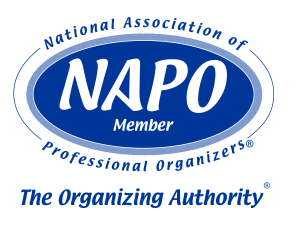
Procrastination is a tricky thing. Frankly, I procrastinated writing this post for 6 days. When I was working on The Real Costs of Procrastination: Installment #1 I thought “I’ll just dive right into Installment #2.” Did I? No. Why? Because I had a whole week to do it. Now, here I am at the 11th hour trying to get in done in time for the deadline.
What was the cost to me of that decision? Significant stress.
Last week I published The Real Costs of Procrastination: Installment #1 that dealt with the tangible and intangible costs of procrastinating on Relationships, Health, Household Chores, Home/Car Repairs, and Organization (my personal favorite). Installment #2 will tackle Wills, Financial Planning, Taxes, Business Costs, and Insurance.
Wills: Not that any of us want to think about it, but at some point, our earthly possessions will need to be passed on to someone else. It’s true, as cool as our stuff is, we can’t take it with us. Wouldn’t it be fantastic if we had some say in where our cool stuff went? Well, that’s what wills are for. A 2008 study found that 58% of Americans did not have a will. That number doesn’t surprise me at all. It should, but it doesn’t. None of us want to think about death and dying, but it is irresponsible to our loved ones not to take care of this important process. When someone passes without a will, the state gets to decide what happens to your stuff. In most situations it could be pretty straight forward: the inheritance goes to the spouse, the kids, etc. But what about our businesses? What about our stepchildren or non-marital significant other? What if we didn’t want everything divided equally? What if we wanted all our money and possessions to go to a favorite charity? Without a valid will, none of these situations would probably be resolved to our desired expectation. Cost of procrastination: Money, Relationships.
(Phew, glad to have that one out of the way.)
Financial Planning: Detailed and thorough financial planning is critical to our long-term well being. When we are in our twenties and thirties, we can’t see past a new pair of jeans to even think about planning for our retirement. Those days just seem too far away. It is never too early to start planning for our retirement; but lots of times it can be too late. What’s the benefit of starting early? Using the compound interest calculator, I wanted to see how much a relatively small investment could grow over time. I started with $1,000 and estimated that I’d put in an additional $50 per month (about 10 lattes with a generous tip), and calculated the growth over 10 years at a 5% interest rate. What would I have at the end of that time period? $9,175.63. Change it to 20 years and the number becomes a staggering $22,492.87. Amazing what a little planning and discipline could do for our long-term financial well being. Cost of procrastination: Limited Retirement Savings, Reduced Retirement Enjoyment.
Taxes: According to a CBS News post, the cost of waiting until the last minute to file income taxes costs on average an additional $400. It’s not that we can just choose to not pay our taxes by April 15. (Well, some folks may, but I’m guessing the cost of that decision is much greater than $400.) We are just delaying the inevitable. If we thought we were getting money back on our taxes, we’d be Johnny-On-The-Spot when it came to filing our taxes, right? Not necessarily. Procrastinators are procrastinators, and whether we think we are getting money back or having to give Uncle Sam money, we generally wait until the last minute to do it anyway. In addition the the extra $400, the stress of not knowing takes a tremendous toll. Cost of procrastination: Money, stress.
Business Costs: A 2012 CNBC post identified the cost of procrastination in business as being a staggering $10,396 . . . . per employee . . . per year. Wow! The article referred to procrastination as “the most invisible cost in business today.” I don’t doubt it. When I worked in Corporate America, I surely procrastinated a bit on projects that I knew needed to get done, but I just didn’t feel motivated to do. Mostly the procrastinated projects had open-ended completion dates, but they were necessary, and the benefit to the company had I completed them in a timely manner would have been significant. Why did I procrastinate? Generally, I felt I didn’t know enough about the project to get started; didn’t feel I had the appropriate resources to get the project completed; or just found other stuff that was more fun to do. Cost of procrastination: Money, Credibility, Possible Promotion
Insurance: I just updated my business insurance a few months ago. Before I renewed in 2013 I committed to shopping my insurance needs around a bit. Well, I procrastinated that project and didn’t do it, letting my carrier renew me for the next 12 months without a second thought. This year I received five proposals covering my current business insurance needs. The result? A 40% reduction in cost for the same coverage. It sickens me to think of what I might have been able to do with that money had I gone through the process in 2013. I should have taken the time to ensure that my coverage was complete and the best value available. The same goes for renewing any kind of insurance: auto, home, personal liability, health, etc. I worked with a client several years ago that hadn’t done a detailed review of their business auto insurance in several years. After my analysis of their coverage, it was determined that two of their vehicles hadn’t been included in the policy. Can you image the cost had there been an accident with one of those vehicles? Frightening. Cost of procrastination: Money, Peace of Mind, Liability
Well, that concludes my top 10 list of areas where we shouldn’t procrastinate and the costs if we do. I hope some of them resonate with you, as they did with me as I was preparing to write about them. We all have so much to do that sometimes things just have to be put aside for a while. And that’s okay. As long as “a while” doesn’t turn into “forever” and we cost ourselves and our loved ones undue financial hardship and stress.
“Procrastination is the practice of carrying out less urgent tasks in preference to more urgent ones, or doing more pleasurable things in place of less pleasurable ones, and thus putting off impending tasks to a later time, sometimes to the “last minute” before the deadline. (Wikipedia)”
Cindy Jobs
 www.organizetosimplify.com
www.organizetosimplify.com
 National Association of Professional Organizers, Seattle Chapter President
National Association of Professional Organizers, Seattle Chapter President
 Certified Premium Subscriber, Institute for Challenging Disorganization
Certified Premium Subscriber, Institute for Challenging Disorganization
 I’m at my mom’s celebrating her 89th birthday. As usual, when I visit, there’s a list of things she (I) would like to accomplish.
I’m at my mom’s celebrating her 89th birthday. As usual, when I visit, there’s a list of things she (I) would like to accomplish.













